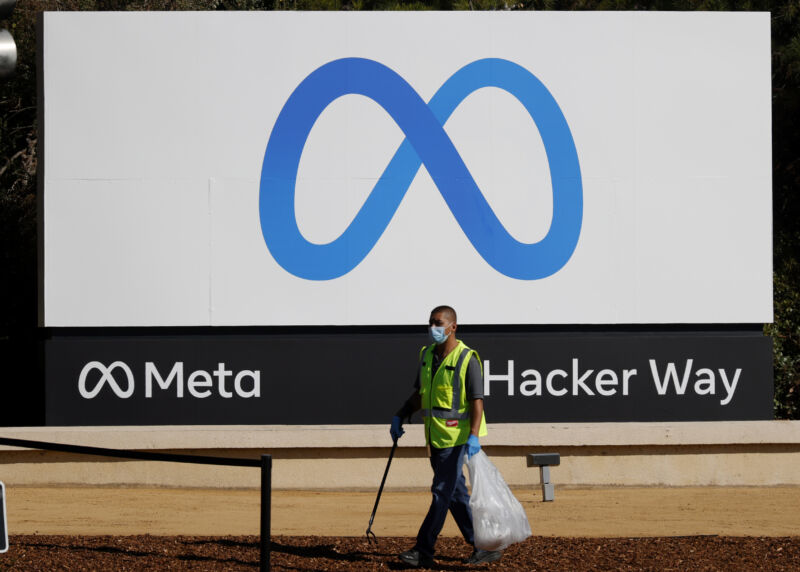
Justin Sullivan/Getty Images
If last year was bad for Meta, this year might be worse.
The company’s earnings call last night painted a dismal picture. Its flagship Facebook platform lost about a million daily active users last quarter, the first time that has happened. Instagram and WhatsApp may still be growing but not by much—last quarter, the company added just 10 million users across all its apps. Meta lost $10 billion on its Reality Labs division, which handles VR and AR, the stuff it has been betting its future on. And the company said that it expects Apple’s App Tracking Transparency feature to slash the coming year’s revenue by $10 billion, or about 10 percent.
The market did not react kindly to the news. Meta’s stock has taken a massive hit and is currently trading down around 24 percent below yesterday’s close, wiping around $200 billion off its market cap.
App Tracking Transparency
There was even bad news buried in the bad news. CFO Dave Wehner said that the hit from iOS’s App Tracking Transparency feature was a best guess. “We’re just estimating what we think is the overall impact of the cumulative iOS changes to where the 2022 revenue forecast is,” he said. “If you aggregate the changes that we’re seeing on iOS, that’s the order of magnitude. We can’t be precise on this. It’s an estimate.”
In other words, Meta, a company built on gathering and analyzing user data, doesn’t have a good handle on how many of its iOS users have enabled ATT.
What’s more, because of ATT, COO Sheryl Sandberg said that Meta is having to increase the cost of certain types of ad buys, like those where the advertiser only pays if someone installs an app or makes a purchase.
Stiff competition
CEO Mark Zuckerberg also acknowledged that Meta was taking a beating from TikTok. “People have a lot of choices for how they want to spend their time, and apps like TikTok are growing very quickly.”
In the past, when faced with a tenacious new competitor, Facebook might have tried to buy it out. This time is different, though. For one, TikTok is owned by ByteDance, a Chinese company. It’s highly unlikely that Chinese regulators would approve such a takeover. And even if TikTok weren’t owned by a Chinese company, it’s doubtful that the US Federal Trade Commission or Department of Justice would sign off. After all, the FTC is currently suing Meta on antitrust grounds over its acquisitions of Instagram and WhatsApp.
As a result of the TikTok threat, Zuckerberg said the company was pivoting to video, again. “We’re in the middle of a transition on our own services towards short-form video like Reels,” he said. “It’s clear short-form video will be an increasing part of how people consume content.” Sounds familiar.
Poor timing
Meta (née Facebook) has overcome similar challenges before. But that was before a year’s worth of damaging revelations that tarnished the company’s brand across a broad spectrum of demographics. If Meta can’t rehab its reputation, or if it can’t out-copy TikTok, or if the FTC antitrust suit forces it to divest Instagram, future earnings calls could be even bleaker.
Meta is still incredibly profitable, having generated over $10 billion in profit last quarter alone. But the company is running into some very strong headwinds, with Apple’s stance on privacy undermining its ad-tracking advantage and its flagship platforms nearing the saturation point among users.
Taken together, Meta is in a tight spot. It’s placing a very expensive, very uncertain, and very long-range bet on becoming the “metaverse” company at the same time its cornerstone apps are at risk of becoming legacy businesses.
